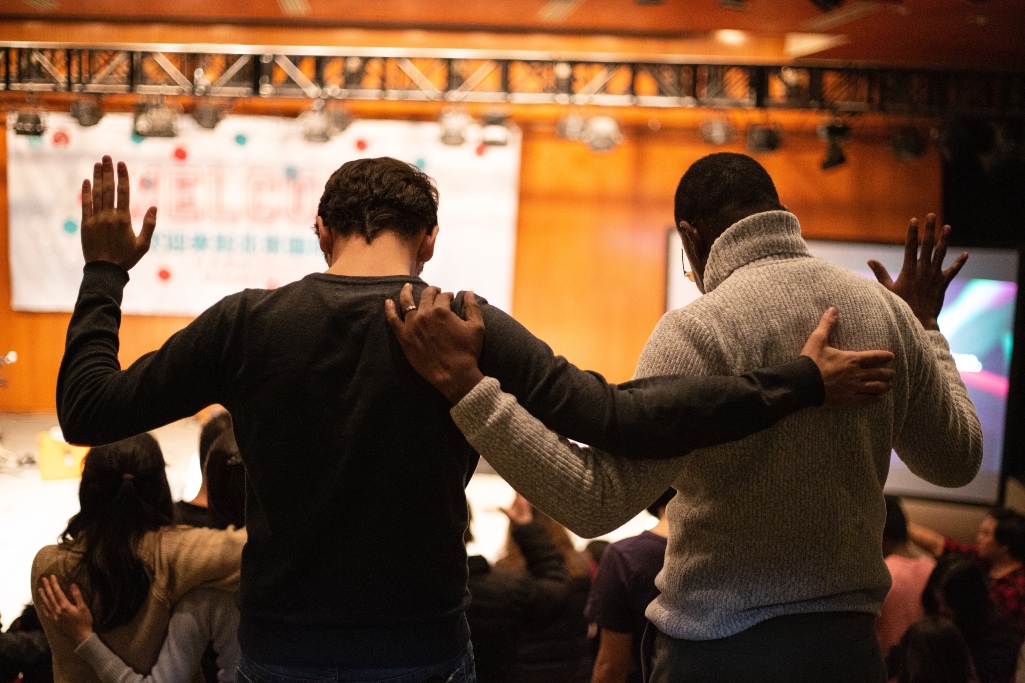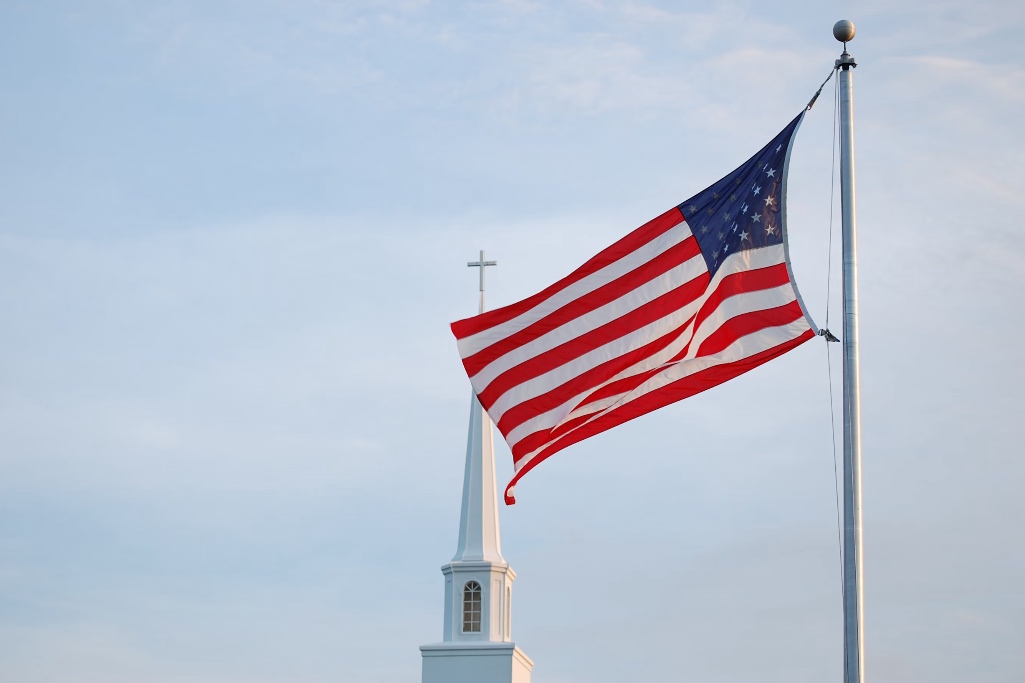(NOTE FROM AUTHOR – The following is an editorial that I shared with members of the Baptist State Convention of North Carolina’s Board of Directors. It reflects my opinions and should not be viewed as a statement that reflects the official position of the board, the sentiments of every board member, the views of all N.C. Baptists, or an official position by the Baptist State Convention of North Carolina.)
Debate continues to swirl around House Bill 2, also known as HB2. The economic impacts of HB2 are but one of the many facets of the debate. As is so often the case in our society, economic impacts are often emphasized above all others. It doesn’t seem to matter if the economy actually realizes a negative impact or if the fear of a negative impact is projected. The results are often the same: Calls for change come when the bottom line is affected.
But what is the bottom line for Christians in light of HB2?
How deeply concerned should North Carolina Baptists be about the economic impacts of HB2? A recent article on WRAL.com estimates that HB2 has resulted in a loss of over $505 million through cancelled concerts, conventions, athletic events and stated expansion of jobs. It’s unclear how many employers have chosen not to expand their operations in our state and have simply not reported these decisions to the media.
This is an enormous amount of money that has been lost in our state. However, the 2015 gross domestic product for North Carolina, as reported by the U.S. Department of Commerce, was in excess of $510 billion. This places the negative impact of HB2 upon the economy of our state at 0.1 percent.
Few of us know anyone for whom $505 million is not an enormous sum of money. So let’s use numbers that many of us can better understand. For a person earning $50,000 a year, a loss of 0.1 percent of their income is equal to $50. This is an amount of money that many of us can understand. But is the economic bottom line something that should drive our decision making in life?
Christians know in their hearts and in their heads that the answer to this question is “no.” But until recently, few Christians have really paid a financial cost for their convictions in this country. In recent years though, Christians who are employed in any number of businesses that engage in the wedding industry have found it nearly impossible to make business decisions based upon their religious convictions without losing business or even landing in court.
Now, HB2 finds itself part of a larger debate in our country, and that debate transcends the economy.
The stated purpose of HB2 has been, from the beginning, to address the actions of the Charlotte City Council when that body passed its anti-discrimination act, commonly referred to as the “bathroom bill.” The N.C. General Assembly, called into special session to consider legislation aimed at overriding the Charlotte City Council, passed what we now know as HB2.
The actions of the Charlotte City Council and the N.C. General Assembly both resulted in outcries of fear that negative economic impact was imminent across the state. However, the issue of HB2 quickly became a national issue. Two agencies of the federal government, the U.S. Department of Education and the U.S. Justice Department, each inserted themselves into the HB2 debate. The Department of Education raised the specter of further economic impact by threatening the loss of federal funding to N.C. public schools and universities.
The U.S. Justice Department later filed a lawsuit against the state of North Carolina regarding HB2.
Because the matters addressed in HB2 have risen to a national level of debate, there is some thought that North Carolina is now ground zero in the debate of gender and sexuality.
As a result, those who hold this position stress the necessity to continue supporting and maintaining HB2 at all cost.
But a most interesting twist entered the debate by way of the N.C. Restaurant and Lodging Association (NCRLA). Representatives of the NCRLA reported that they had been in conversations with leaders within the N.C. General Assembly and the Charlotte City Council and that a repeal of HB2 might be under consideration if certain expectations were met.
Those expectations? Supposedly, General Assembly leaders indicated that a full repeal of the Charlotte anti-discrimination policy would lead to a full repeal of HB2. Furthermore, the governor’s office reported that if the Charlotte City Council took such action, Gov. McCrory would call the General Assembly into special session to repeal HB2.
For those for whom the economy is the bottom line, this news appeared to be a message of hope. Again, the stated reason for the General Assembly enacting HB2 was due to the Charlotte City Council’s action of enacting its anti-discrimination policy. If both pieces of legislation are repealed, then a virtual reset would take place, meaning that issues would automatically return to pre-Charlotte ordinance and pre-HB2 status.
But this raises an important question: What was the status of discrimination as it relates to gender and sexuality prior to these legislative actions?
While the economic impact was not visible, there was a much greater impact taking place across the state and nation regarding gender and sexuality prior to these legislative actions.
It is this matter that is of most importance to Christians. Even prior to the Charlotte ordinance and HB2, a gulf was widening concerning the understanding of gender and sexuality, specifically related to the boundaries of each.
It is that point that needs to be understood by N.C. Baptists and other Christians. Long before the Charlotte City Council or the N.C. General Assembly took any action, the boundaries of gender and sexuality were eroding. The reality is, regardless of whether HB2 remains or is removed – the federal court case regarding HB2 is scheduled to begin Nov. 14, 2016, in Winston-Salem – the erosion of boundaries regarding gender and sexuality will continue.
So, what should be the next steps for N.C. Baptists regarding HB2?
Certainly, we should respect the judicial process that is already underway, and we should pray earnestly for those in positions to render the decision(s) regarding HB2.
But, most importantly, N.C. Baptists must remember that the answers to questions regarding gender and sexuality are not found in legislation on any level. Even if HB2 stands the scrutiny of the federal courts, and even if the Charlotte ordinance is repealed, the fact remains that so many people in our land are utterly confused about gender and sexuality.
This means that the church has the opportunity to bring clarity to issues for which the courts have already demonstrated a lack of clarity. In addition, the church has the opportunity to proclaim truths that the courts will not – that clarity in the matters of gender and sexuality can be found in the timeless truths of the Bible.
This means that our next steps should be the same as our first steps – pray for all people, proclaim God’s truths to all people and prove God’s love for all people. N.C. Baptists need to spend more time praying for those who are confused about gender and sexuality rather than resort to complaining about these same people. N.C. Baptists need to proclaim the truths of God’s Word regarding gender and sexuality – without reservation, but with respect and with love. And N.C. Baptists need to prove that the love of Christ, which we claim has changed our hard hearts, compels us to express love for those who are confused regarding gender and sexuality, even if these people are antagonistic toward us and the message of the gospel. Were these your first steps when HB2 was passed? If not, these are the steps necessary moving forward.
Recent decisions in federal courts do not bode well for HB2. Again, gender and sexuality are being defined in ways that cut across our culture’s traditions – traditions that were often influenced by [s]cripture in days gone by. Christians in general, and N.C. Baptists in particular, are called to focus their efforts not on legislation, nor on candidates for public office, but upon the Great Commission given to us by our Lord to “go therefore and make disciples of all the nations, baptizing them in the name of the Father and the Son and the Holy Spirit, teaching them to observe all that I commanded you …” (Matthew 28:19-20).
And included in the admonition of “teaching them to observe all that I commanded you” are the truths of [s]cripture regarding gender and sexuality.
The young people of our communities, and possibly within our churches, need clarity on God’s design for gender and sexuality. Their lack of understanding of these truths leaves them open and vulnerable to half-truths, deceptions and lies. The reckless pursuit of happiness, which is one of the pillars of those seeking to further erode boundaries of gender and sexuality, is inconsistent with [s]cripture. Far too many in the church fail to understand that the doctrine of love, as outlined in [s]cripture, includes both grace and mercy, as well as holiness and righteousness. The inclusion of one to the exclusion of the other in our preaching and teaching will result in immature disciples who cannot discern truth from lies.
But it is not young people alone who are confused by gender and sexuality. Our communities are filled with parents and grandparents who mistakenly reinforce the confusion expressed by their children/grandchildren. While every parent has a scriptural admonition to love their children, the [s]criptures are clear that parents who love their children do not withhold God’s truth from them. The continued expansion of permissive parenting reveals the necessity for the church to increase its disciple-making efforts in both reaching young people with the gospel and equipping parents to be disciple-makers. Yes, disciple-making must take place at home, but the church has a strategic role in equipping parents as disciple-makers to take the gospel home with them.
If HB2 is overturned, has hope been lost? No! But neither is hope retained if HB2 is sustained. Our hope is in the gospel and our commitment must be to the fulfillment of the Great Commission and the expansion of our Lord’s [K]ingdom. It remains to be seen what new opposition the gospel will face in the years to come. It is possible that persecution may come for those who hold to the scriptural definitions of gender and sexuality. But, come what may, N.C. Baptists must be resolute in our commitment to pray for all people, proclaim God’s truths to all people and prove God’s love for all people. These should be our next steps.
(EDITOR’S NOTE – Brian K. Davis, is associate executive director-treasurer for the Baptist State Convention of North Carolina.)


